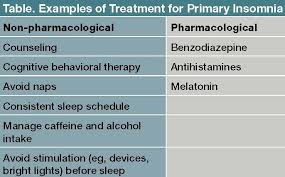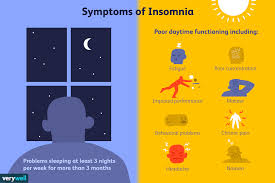Social Anxiety Disorder Treatment: Overcoming the Fear of Social Interactions
Social anxiety disorder, also known as social phobia, is a common mental health condition that affects millions of people worldwide. It is characterized by an intense fear of social situations and the persistent worry of being judged or humiliated by others. While it can significantly impact one’s quality of life, the good news is that effective treatments are available to help individuals overcome this debilitating condition.
Cognitive-Behavioral Therapy (CBT):
CBT is considered the gold standard treatment for social anxiety disorder. This therapy focuses on identifying and challenging negative thoughts and beliefs that contribute to anxiety. Through gradual exposure to feared social situations, individuals learn new coping strategies and develop more realistic thinking patterns. CBT equips individuals with skills to manage anxiety symptoms effectively.
Medication:
In some cases, medication may be prescribed alongside therapy to alleviate symptoms of social anxiety disorder. Selective serotonin reuptake inhibitors (SSRIs) and serotonin-norepinephrine reuptake inhibitors (SNRIs) are commonly used antidepressants that have been found effective in reducing anxiety symptoms over time. It is essential to consult with a qualified healthcare professional for guidance on medication options.
Group Therapy:
Group therapy provides a supportive environment where individuals with social anxiety disorder can interact with others who share similar experiences. This form of therapy offers an opportunity for practice and feedback in a safe setting while fostering a sense of belonging and understanding among participants.
Mindfulness-Based Therapies:
Mindfulness techniques, such as meditation and deep breathing exercises, can help individuals manage anxious thoughts and physical sensations associated with social anxiety disorder. By cultivating present-moment awareness, individuals can learn to respond to their fears in a more balanced and less reactive manner.
Self-Help Strategies:
In addition to professional treatment, there are self-help strategies that individuals can incorporate into their daily lives. These may include maintaining a healthy lifestyle with regular exercise, adequate sleep, and a balanced diet. Engaging in activities that promote relaxation, such as yoga or hobbies, can also be beneficial in managing anxiety symptoms.
Virtual Reality Therapy:
Virtual reality (VR) therapy is an emerging treatment option for social anxiety disorder. It involves exposing individuals to virtual social situations while guided by a therapist. This technology allows for controlled exposure and practice in realistic social scenarios, helping individuals gradually overcome their fears.
Remember, seeking help is the first step towards overcoming social anxiety disorder. It’s important to consult with a qualified mental health professional who can assess your specific needs and develop an individualized treatment plan. With the right support and treatment, individuals with social anxiety disorder can regain confidence and lead fulfilling lives, free from the constraints of their fears.
Frequently Asked Questions About Social Anxiety Disorder Treatment: Root Causes, Cures, Main Causes, Best Treatments, and First Line Options
- What is the root cause of social anxiety?
- Can social anxiety disorder be cured?
- What are the main causes of social anxiety?
- What is the best treatment for social anxiety disorder?
- What is the first line treatment for social anxiety disorder?
What is the root cause of social anxiety?
The root cause of social anxiety disorder is not attributed to a single factor but rather a combination of various factors, including:
- Genetic Predisposition: There is evidence to suggest that social anxiety disorder may have a genetic component. Individuals with a family history of anxiety disorders are more likely to develop social anxiety themselves.
- Environmental Factors: Traumatic experiences, such as bullying, humiliation, or social rejection during childhood or adolescence, can contribute to the development of social anxiety disorder. Negative social interactions or a lack of supportive relationships can also impact one’s self-esteem and confidence in social situations.
- Brain Chemistry and Structure: Imbalances in certain neurotransmitters, such as serotonin and gamma-aminobutyric acid (GABA), which regulate mood and anxiety, may play a role in the development of social anxiety disorder. Additionally, studies have shown differences in brain structure and activity in individuals with social anxiety.
- Cognitive Factors: Negative thinking patterns and distorted beliefs about oneself and others can contribute to the development and maintenance of social anxiety disorder. These cognitive factors often involve excessive self-criticism, fear of judgment or embarrassment, and an overestimation of negative outcomes in social situations.
It’s important to note that while these factors may contribute to the development of social anxiety disorder, each individual’s experience is unique. The interplay between genetics, environment, brain chemistry, and cognitive factors varies from person to person.
Understanding the root causes can help guide treatment approaches by addressing underlying factors contributing to the individual’s social anxiety. Effective treatments focus on challenging negative thoughts, developing coping strategies, building self-confidence, and gradually exposing individuals to feared social situations.
Can social anxiety disorder be cured?
While there is no definitive “cure” for social anxiety disorder, it is highly treatable. With the right combination of therapeutic interventions, self-help strategies, and support, individuals with social anxiety disorder can experience significant improvement in their symptoms and lead fulfilling lives.
Treatment approaches such as cognitive-behavioral therapy (CBT) have shown great success in helping individuals manage and overcome social anxiety. CBT focuses on identifying and challenging negative thought patterns and behaviors associated with social anxiety. Through gradual exposure to feared situations and the development of new coping skills, individuals can learn to navigate social interactions more comfortably.
It’s important to note that the goal of treatment is not necessarily to eliminate all feelings of anxiety but rather to reduce the intensity of symptoms and improve overall functioning. Many individuals with social anxiety disorder find that they can effectively manage their symptoms and engage in social situations without experiencing significant distress.
Ongoing self-care practices are also crucial in managing social anxiety disorder. This may involve incorporating relaxation techniques, such as deep breathing exercises or mindfulness meditation, into daily routines. Regular exercise, maintaining a healthy lifestyle, and seeking support from friends, family, or support groups can also be beneficial.
It’s essential to remember that everyone’s journey with social anxiety disorder is unique, and treatment outcomes may vary from person to person. The key is to seek professional help from qualified mental health professionals who specialize in anxiety disorders. They can provide tailored treatment plans based on individual needs and guide individuals towards long-term management strategies.
With proper treatment and ongoing support, individuals with social anxiety disorder can significantly reduce their symptoms, increase their confidence in social situations, and lead fulfilling lives that are not limited by fear or avoidance.
What are the main causes of social anxiety?
The causes of social anxiety disorder can be complex and multifaceted. While there is no single cause, several factors are believed to contribute to the development of social anxiety. Here are some of the main factors:
- Genetics: Research suggests that genetics play a role in the development of social anxiety disorder. Individuals with a family history of anxiety disorders may be more predisposed to developing social anxiety.
- Environmental Factors: Traumatic experiences, such as bullying, humiliation, or rejection during childhood or adolescence, can contribute to the development of social anxiety disorder. Negative social experiences can shape one’s beliefs and perceptions about oneself and others, leading to heightened fear and avoidance of social interactions.
- Brain Chemistry: Neurotransmitters like serotonin and norepinephrine are involved in regulating mood and anxiety levels. Imbalances in these neurotransmitters may contribute to the development of social anxiety disorder.
- Cognitive Biases: Certain thinking patterns can contribute to the maintenance of social anxiety. These include excessive self-focus, negative self-evaluation, and an exaggerated fear of negative evaluation from others. These cognitive biases perpetuate anxious thoughts and behaviors.
- Learned Behavior: Observing or experiencing anxious behavior in others can influence the development of social anxiety disorder. If someone grows up in an environment where social interactions are consistently portrayed as threatening or dangerous, they may internalize those beliefs and develop similar anxieties themselves.
- Social Skills Deficits: Difficulties with interpersonal skills or a lack of confidence in one’s ability to navigate social situations can contribute to social anxiety disorder. A fear of being judged negatively or making mistakes may lead individuals to avoid situations where they feel socially inadequate.
It’s important to note that everyone’s experience with social anxiety disorder is unique, and individual factors may vary from person to person. Understanding these potential causes can help individuals seek appropriate treatment options tailored to their specific needs.
What is the best treatment for social anxiety disorder?
The best treatment for social anxiety disorder is a combination of therapies tailored to an individual’s specific needs. While different approaches may work for different people, the following treatments have been found to be effective:
- Cognitive-Behavioral Therapy (CBT): CBT is considered the most effective form of therapy for social anxiety disorder. It helps individuals identify and challenge negative thoughts and beliefs, develop coping strategies, and gradually face feared social situations.
- Medication: Selective serotonin reuptake inhibitors (SSRIs) and serotonin-norepinephrine reuptake inhibitors (SNRIs) are commonly prescribed antidepressants that can help reduce anxiety symptoms over time. Medication should be used in conjunction with therapy and under the guidance of a qualified healthcare professional.
- Group Therapy: Participating in group therapy provides a supportive environment where individuals can interact with others who share similar experiences. It offers opportunities for practice, feedback, and building social skills while reducing feelings of isolation.
- Mindfulness-Based Therapies: Mindfulness techniques, such as meditation and deep breathing exercises, can help individuals manage anxious thoughts and physical sensations associated with social anxiety disorder. They promote present-moment awareness and a more balanced response to fears.
- Virtual Reality Therapy: Virtual reality (VR) therapy is an innovative treatment option that allows individuals to practice facing feared social situations in a controlled virtual environment. This technology helps desensitize individuals to their fears gradually.
It’s important to note that treatment effectiveness may vary from person to person, and it’s crucial to work with a qualified mental health professional who can assess your specific needs and develop an individualized treatment plan. The best approach often involves a combination of therapies tailored to your circumstances, preferences, and goals.
What is the first line treatment for social anxiety disorder?
The first-line treatment for social anxiety disorder is Cognitive-Behavioral Therapy (CBT).



